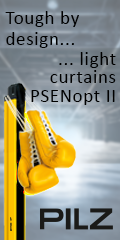
Posted to News on 20th Nov 2024, 14:30
Digitalisation across the entire value chain
'Digitalisation' is a buzzword that has been floating around for a while. But is it still relevant? The short answer is yes. While many businesses have made some adjustments to move towards digitalised processes to automate some manual, time-consuming tasks, in many instances there is still room for significant further improvement, or indeed for that first step to be taken, as the experts at Rittal explain.

(See Rittal at Machine Building North, 10 April 2025, on stand 95)
Digitalisation refers to the integration of digital technologies into manufacturing processes to improve efficiency, productivity, and flexibility. It involves using various digital tools and techniques to transform traditional manufacturing methods and operations.
Digitalisation is still a very important development for a number of reasons. These include:
Enhanced efficiency: Digitalisation streamlines design and manufacturing processes by integrating digital tools, such as Electrical CAD software and digital twins. This reduces manual errors, accelerates production times, and optimises resource use.
Skills shortage: Utilising digital tools and technology can mean that lesser-skilled employees may be able to perform tasks traditionally requiring highly skilled workers. This helps businesses to complete larger volumes of work to a consistently high standard, despite the current skills gap.
Accurate data flow: With digital data flow from project conception to completion, projects stay consistent throughout.
Improved Accuracy and Precision: Digital tools provide precise specifications and data, which enhance the accuracy of designs and assemblies. This precision ensures that panels and machines meet stringent quality standards, reducing the risk of defects and rework. It also ensures that panels are consistent from one to the next, helping contribute to quality control and business reputation.
Better Collaboration: Digital platforms facilitate seamless collaboration among design, engineering, and manufacturing teams. By sharing real-time data and updates, teams can work more cohesively, improving communication and reducing misunderstandings.
Data-Driven Decision Making: A data-driven approach helps identify areas for improvement, optimise processes, and enhance overall productivity. It also allows for greater customisation and flexibility in design. Manufacturers can easily modify designs to meet specific customer requirements, adapt to new trends, and quickly respond to market demands.
Sustainability: Digitalisation supports sustainable practices by optimising resource usage, reducing waste, and improving energy efficiency. It also enables better lifecycle management of products, from design to end-of-life recycling.
Competitive Advantage: Companies that embrace digitalisation can stay ahead of the competition by offering innovative solutions, faster delivery times, and higher quality products.
For sister companies Rittal and Eplan, digitalisation, and the use of data as an enabler for automation, is at the heart of their joint venture, the new Rittal Application Centre which opened in May on their Rotherham site. The Centre helps answer a very important question: How can panel building and switchgear manufacturers make the leap into the world of digitalisation and automation - and how can they prepare for the future? Visitors are welcomed onto the site to explore the answers to this nuanced and challenging question.
Rittal and Eplan together combine industrial experience and technological know-how to help businesses automate, and digitalise, processes along their value chain. They streamline and speed up processes at every phase: from engineering, to procurement and manufacturing, through to operation.
When customers visit the Application Centre, the Centre's knowledgeable staff spend time getting to know the business, finding out what processes are working well and what processes could be improved to help them stay competitive. During visits, customers get to see how these processes work in a practical environment, view exciting software and automation solutions in action, and discover how implementing changes could save time, money and reduce challenges.
As industry evolves to meet modern needs, manufacturing data is becoming ever-more important, which is a key theme in the Rittal Application Centre. Standardising electrical engineering processes starts at the design/project planning phase. Design engineers can, for example, work with software such as a wiring plan (schematic) configurator like Eplan eBuild. All they need to do when using this configurator is click the relevant functions, key data, variants and operations. Wiring plans, parts lists and other documents are then generated on an automated basis.
The associated digital continuity offers companies huge potential. This continuity applies both horizontally across the various stages of project planning - from preliminary planning using Eplan Preplanning, to commissioning and maintenance - and vertically across individual disciplines, all the way through to the supplier for tasks such as cable processing.
Continued data flow from design into production ensures that the engineer's design intent is effectively communicated through all production processes, and allows for a seamless workflow. The potential can be discovered at the Application Centre, which demonstrates how integration from software solutions to automation machinery helps panel builders to work smarter.
Rittal has developed intelligent production machines that respond to Eplan's output data and engineering software. For example, panel builders can use Eplan Pro Panel software to design their cabinets in 3D, then send the data from these drawings to a CNC milling terminal or laser centre to drill, tap and cut out enclosure components.
Further processes can also be automated. For example, the Rittal Wire Terminal allows the preparation of wires with individual printing, and provides the correct finish up to ten times faster than by hand. In addition, the Wire Terminal excels with its variety of combinations, different wire output methods, and support for downstream, digitally consistent and automated processes such as labelling, sorting, and transportation. For a first foray into the world of digitalisation and automation, a smaller step is semi-automatic wire preparation using cutting, stripping and crimping machines on a dedicated wire station.
For forward-thinking businesses wanting to stay competitive, navigate challenges such as the skills shortage, and optimise costs and resources, digitalisation and automation should be key strategies.
Whether help is needed with a specific area, such as digital documentation, enclosure modification, component cutting, wire processing, busbar machining or data flow through projects, or businesses are looking to optimise their whole panel building or switchgear manufacturing operations; the Rittal Application Centre is worth a visit.
Want the latest machine building news straight to your inbox? Become a MachineBuilding member for free today >>
Braithwell Way, Hellaby Industrial Estate
Hellaby
S66 8QY
UNITED KINGDOM
+44 (0)1709 704000















